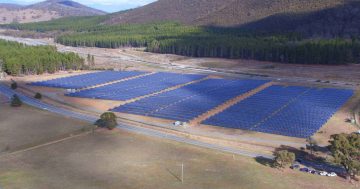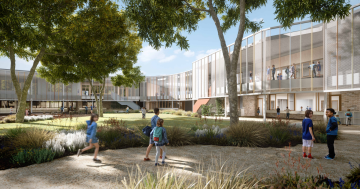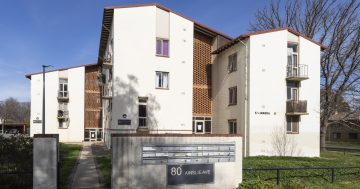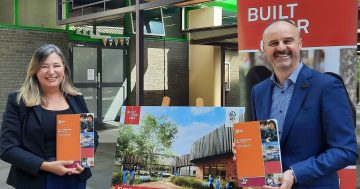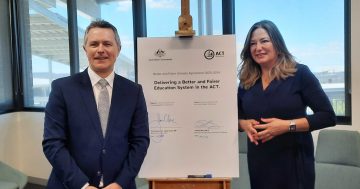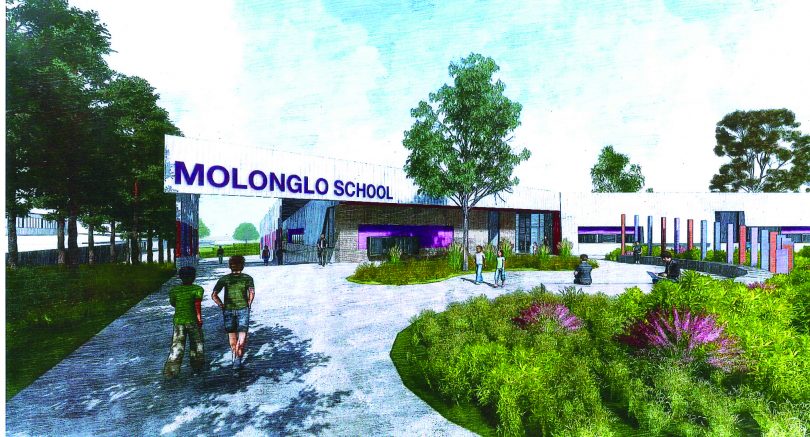
The new P-6 primary school in Denman Prospect is set to open in 2021. Images: Supplied.
Canberra’s 89th public school will also become the national capital’s second zero-emissions school, as the ACT Government revealed the first artist’s impressions of the school in Denman Prospect.
Following a tender process, Joss Construction has been tasked to deliver the new school in Molonglo Valley. Detailed design work has already begun, with construction expected to start later this year, ready for its first students in term one 2021.
The $47 million school is set to be built in two stages. The first stage will cater for up to 644 students from preschool to year six. The second stage, for students in years seven to 10, will come online as Molonglo grows.
The local community will have the opportunity to provide input into the school name, uniform and logo as part of the community engagement strategy for the school early next year.
ACT Education Minister Yvette Berry said the energy-efficient school will use onsite generated renewable energy to support the ACT’s target of zero net greenhouse gas emissions by 2045.
Ms Berry said the design of the school facility will focus on sustainability and environmental design following in the footsteps of Canberra’s first zero-emissions school, the Margaret Hendry School.

The school will incorporate both indoor and outdoor learning areas, as well as integrated spaces to support students with specialised needs.
“The ACT is leading the nation in climate action and school infrastructure is one way that the government can make a big difference towards reducing carbon emissions on behalf of the Canberra community,” Ms Berry said.
“ACT public schools provide a great example of sustainable development in public facilities, and they set a positive example for our students and the whole community.
“The ACT Government is committed to doing the heavy lifting when it comes to action on climate change to reduce the impact on Canberra families.”
All public schools in the territory now have rooftop solar panels representing a total of 2,356 kilowatts of solar photovoltaic arrays. Last year, 21 schools had draught-proofing completed on doors helping to reduce heating requirements.
Over the next four years, the ACT Government will spend $15.9 million to upgrade heating systems in nine public schools as part of its energy-efficient heating system renewal program. Around 621 tonnes of carbon dioxide will be saved annually.
During the 2017-18 financial year, the government also reduced the energy consumption of public schools by 8.39 per cent through energy efficiency initiatives including infrastructure upgrades.












